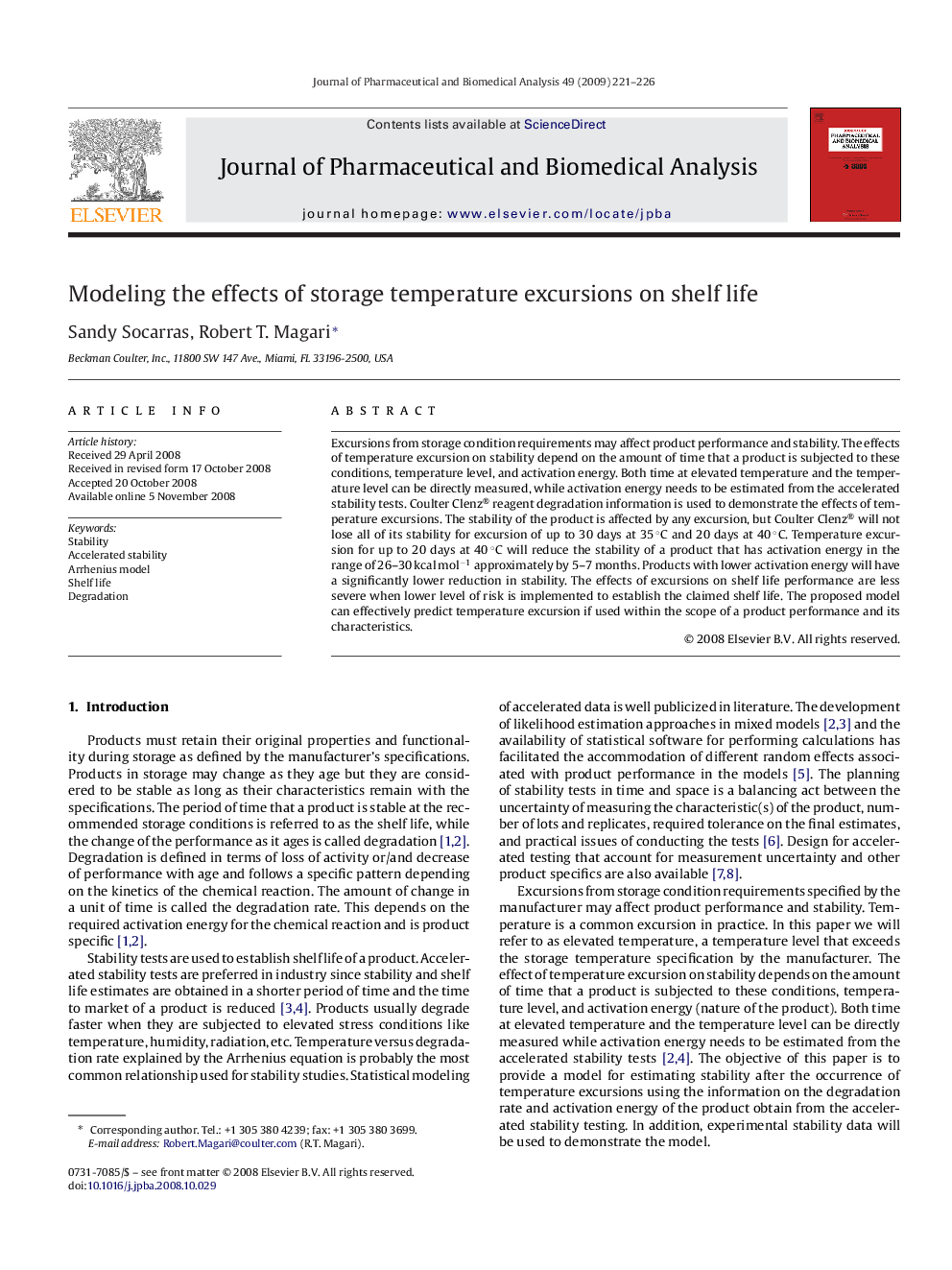| Article ID | Journal | Published Year | Pages | File Type |
|---|---|---|---|---|
| 1222324 | Journal of Pharmaceutical and Biomedical Analysis | 2009 | 6 Pages |
Excursions from storage condition requirements may affect product performance and stability. The effects of temperature excursion on stability depend on the amount of time that a product is subjected to these conditions, temperature level, and activation energy. Both time at elevated temperature and the temperature level can be directly measured, while activation energy needs to be estimated from the accelerated stability tests. Coulter Clenz® reagent degradation information is used to demonstrate the effects of temperature excursions. The stability of the product is affected by any excursion, but Coulter Clenz® will not lose all of its stability for excursion of up to 30 days at 35 °C and 20 days at 40 °C. Temperature excursion for up to 20 days at 40 °C will reduce the stability of a product that has activation energy in the range of 26–30 kcal mol−1 approximately by 5–7 months. Products with lower activation energy will have a significantly lower reduction in stability. The effects of excursions on shelf life performance are less severe when lower level of risk is implemented to establish the claimed shelf life. The proposed model can effectively predict temperature excursion if used within the scope of a product performance and its characteristics.
